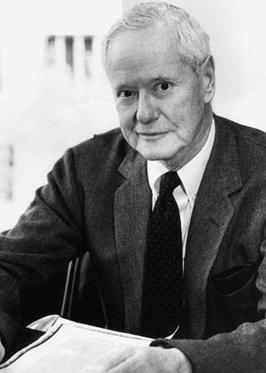
A social class is a grouping of people into a set of hierarchical social categories, the most common being the upper, middle and lower classes. Membership in a social class can for example be dependent on education, wealth, occupation, income, and belonging to a particular subculture or social network.

A society is a group of individuals involved in persistent social interaction, or a large social group sharing the same spatial or social territory, typically subject to the same political authority and dominant cultural expectations. Societies are characterized by patterns of relationships between individuals who share a distinctive culture and institutions; a given society may be described as the sum total of such relationships among its constituent of members. In the social sciences, a larger society often exhibits stratification or dominance patterns in subgroups.

Social status is the level of social value a person is considered to possess. More specifically, it refers to the relative level of respect, honour, assumed competence, and deference accorded to people, groups, and organizations in a society. Status is based in widely shared beliefs about who members of a society think holds comparatively more or less social value, in other words, who they believe is better in terms of competence or moral traits. Status is determined by the possession of various characteristics culturally believed to indicate superiority or inferiority. As such, people use status hierarchies to allocate resources, leadership positions, and other forms of power. In doing so, these shared cultural beliefs make unequal distributions of resources and power appear natural and fair, supporting systems of social stratification. Status hierarchies appear to be universal across human societies, affording valued benefits to those who occupy the higher rungs, such as better health, social approval, resources, influence, and freedom.

Robert King Merton was an American sociologist who is considered a founding father of modern sociology, and a major contributor to the subfield of criminology. He served as the 47th President of the American Sociological Association. He spent most of his career teaching at Columbia University, where he attained the rank of University Professor. In 1994 he was awarded the National Medal of Science for his contributions to the field and for having founded the sociology of science.
Ascribed status is a term used in sociology that refers to the social status of a person that is assigned at birth or assumed involuntarily later in life. The status is a position that is neither earned by the person nor chosen for them. Rather, the ascribed status is assigned based on social and cultural expectations, norms, and standards. These positions are occupied regardless of efforts or desire. These rigid social designators remain fixed throughout an individual's life and are inseparable from the positive or negative stereotypes that are linked with one's ascribed statuses.

Sociobiology: The New Synthesis is a book by the biologist E. O. Wilson. It helped start the sociobiology debate, one of the great scientific controversies in biology of the 20th century and part of the wider debate about evolutionary psychology and the modern synthesis of evolutionary biology. Wilson popularized the term "sociobiology" as an attempt to explain the evolutionary mechanics behind social behaviour such as altruism, aggression, and the nurturing of the young. It formed a position within the long-running nature versus nurture debate. The fundamental principle guiding sociobiology is that an organism's evolutionary success is measured by the extent to which its genes are represented in the next generation.

Social stratification refers to a society's categorization of its people into groups based on socioeconomic factors like wealth, income, race, education, ethnicity, gender, occupation, social status, or derived power. As such, stratification is the relative social position of persons within a social group, category, geographic region, or social unit.
Gerhard Emmanuel "Gerry" Lenski, Jr. was an American sociologist known for contributions to the sociology of religion, social inequality, and introducing the ecological-evolutionary theory. He spent much of his career as a professor at the University of North Carolina at Chapel Hill, where he served as chair of the Department of Sociology, 1969–72, and as chair of the Division of Social Sciences, 1976-78.
Achieved status is a concept developed by the anthropologist Ralph Linton for a social position that a person can acquire on the basis of merit and is earned or chosen. It is the opposite of ascribed status and reflects personal skills, abilities, and efforts. Examples of achieved status are being an Olympic athlete, a criminal, or a college professor.

A fad or trend is any form of collective behavior that develops within a culture, a generation or social group in which a group of people enthusiastically follow an impulse for a short period.
Randall Collins is an American sociologist who has been influential in both his teaching and writing. He has taught in many notable universities around the world and his academic works have been translated into various languages. Collins is currently the Dorothy Swaine Thomas Professor of Sociology, Emeritus at the University of Pennsylvania. He is a leading contemporary social theorist whose areas of expertise include the macro-historical sociology of political and economic change; micro-sociology, including face-to-face interaction; and the sociology of intellectuals and social conflict. Collins's publications include The Sociology of Philosophies: A Global Theory of Intellectual Change (1998), which analyzes the network of philosophers and mathematicians for over two thousand years in both Asian and Western societies. His current research involves macro patterns of violence including contemporary war, as well as solutions to police violence. He is considered to be one of the leading non-Marxist conflict theorists in the United States, and served as the president of the American Sociological Association from 2010 to 2011.
Occupational segregation is the distribution of workers across and within occupations, based upon demographic characteristics, most often gender. Other types of occupational segregation include racial and ethnicity segregation, and sexual orientation segregation. These demographic characteristics often intersect. While a job refers to an actual position in a firm or industry, an occupation represents a group of similar jobs that require similar skill requirements and duties. Many occupations are segregated within themselves because of the differing jobs, but this is difficult to detect in terms of occupational data. Occupational segregation compares different groups and their occupations within the context of the entire labor force. The value or prestige of the jobs are typically not factored into the measurements.

Sociology is a social science that focuses on society, human social behavior, patterns of social relationships, social interaction, and aspects of culture associated with everyday life. It uses various methods of empirical investigation and critical analysis to develop a body of knowledge about social order and social change. While some sociologists conduct research that may be applied directly to social policy and welfare, others focus primarily on refining the theoretical understanding of social processes and phenomenological method. Subject matter can range from micro-level analyses of society to macro-level analyses.
Charles B. Nam was born in Lynbrook, New York on March 25, 1926, and currently resides in Tallahassee, Florida. He was a Professor of Sociology for 31 years with one of his most important contributions being the Nam-Powers Index measuring occupational status.

Pitirim Alexandrovich Sorokin was a Russian American sociologist and political activist, who contributed to the social cycle theory.
Nan Dirk de Graaf is a Dutch sociologist working in Nuffield College, University of Oxford. He is known for his work on social stratification, religion, political sociology, the impact of social mobility on a variety of social issues, pro-social behaviour, as well as his books.
Culture Against Man is a 1963 book-length ethnography by anthropologist Jules Henry of his native United States culture. The book is presented in three parts: American life and its institutions, discussion on child-rearing, and discussion on nursing homes.
The Vanishing Adolescent is a 1959 book-length essay by Edgar Z. Friedenberg that describes changes American youth's sociological experience of adolescence. The volume was reprinted ten times and translated into multiple languages.
Walter Korpi is a Swedish sociologist.
Primitive Rebels is a 1959 book by Eric Hobsbawm on pre-modern European social movements and social banditry.







